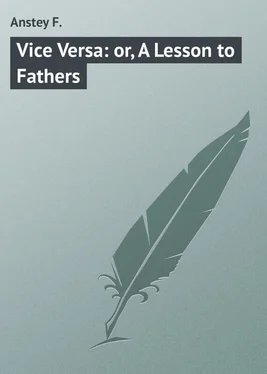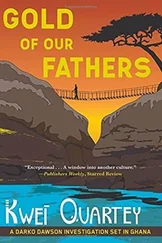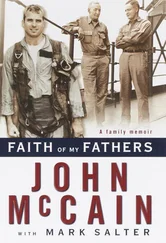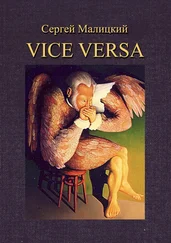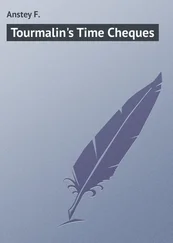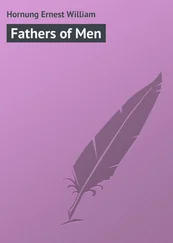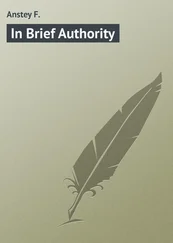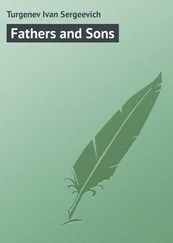F. Anstey - Vice Versa - or, A Lesson to Fathers
Здесь есть возможность читать онлайн «F. Anstey - Vice Versa - or, A Lesson to Fathers» — ознакомительный отрывок электронной книги совершенно бесплатно, а после прочтения отрывка купить полную версию. В некоторых случаях можно слушать аудио, скачать через торрент в формате fb2 и присутствует краткое содержание. Жанр: foreign_language, foreign_prose, foreign_humor, на английском языке. Описание произведения, (предисловие) а так же отзывы посетителей доступны на портале библиотеки ЛибКат.
- Название:Vice Versa: or, A Lesson to Fathers
- Автор:
- Жанр:
- Год:неизвестен
- ISBN:нет данных
- Рейтинг книги:5 / 5. Голосов: 1
-
Избранное:Добавить в избранное
- Отзывы:
-
Ваша оценка:
- 100
- 1
- 2
- 3
- 4
- 5
Vice Versa: or, A Lesson to Fathers: краткое содержание, описание и аннотация
Предлагаем к чтению аннотацию, описание, краткое содержание или предисловие (зависит от того, что написал сам автор книги «Vice Versa: or, A Lesson to Fathers»). Если вы не нашли необходимую информацию о книге — напишите в комментариях, мы постараемся отыскать её.
Vice Versa: or, A Lesson to Fathers — читать онлайн ознакомительный отрывок
Ниже представлен текст книги, разбитый по страницам. Система сохранения места последней прочитанной страницы, позволяет с удобством читать онлайн бесплатно книгу «Vice Versa: or, A Lesson to Fathers», без необходимости каждый раз заново искать на чём Вы остановились. Поставьте закладку, и сможете в любой момент перейти на страницу, на которой закончили чтение.
Интервал:
Закладка:
It was too clear that the stone must have carried out his thoughtless wish with scrupulous and conscientious exactness in every detail. He had wanted, or said he wanted, to be a boy again like Dick, and accordingly he had become a perfect duplicate, even to the contents of the pockets. Evidently nothing on the face of things showed the slightest difference. Yet – and here lay the sting of the metamorphosis – he was conscious under it all of being his old original self, in utter discordance with the youthful form in which he was an unwilling prisoner.
By this time the cab had driven up the sharp incline, and under the high pointed archway of St. Pancras terminus, and now drew up with a jerk against the steps leading to the booking office.
Paul sprang out at once in a violent passion. "Here, you, Clegg!" he said, "why the devil didn't you pull up when I told you? eh?"
Clegg was a burly, red-faced man, with a husky voice and a general manner which conveyed the impression that he regarded teetotalism, as a principle, with something more than disapproval.
"Why didn't I pull up?" he said, bending stiffly down from his box. "'Cause I didn't want to lose a good customer, that's why I didn't pull up!"
"Do you mean to say you don't know me?"
"Know yer?" said Clegg, with an approach to sentiment: "I've knowed yer when you was a babby in frocks. I've knowed yer fust nuss (and a fine young woman she were till she took to drinking, as has been the ruin of many). I've knowed yer in Infancy's hour and in yer byhood's bloom! I've druv yer to this 'ere werry station twice afore. Know yer!"
Paul saw the uselessness of arguing with him. "Then, ah – drive me back at once. Let those boxes alone. I – I've important business at home which I'd forgotten."
Clegg gave a vinous wink. "Lor, yer at it agin," he said with admiration. "What a artful young limb it is! But it ain't what yer may call good enough, so to speak, it ain't. Clegg don't do that no more!"
"Don't do what?" asked Paul.
"Don't drive no young gents as is a-bein' sent to school back agin into their family's bosims," said Clegg sententiously. "You was took ill sudden in my cab the larst time. Offal bad you was, to be sure – to hear ye, and I druv' yer back; and I never got no return fare, I didn't, and yer par he made hisself downright nasty over it, said as if it occurred agin he shouldn't employ me no more. I durstn't go and offend yer par; he's a good customer to me, he is."
"I'll give you a sovereign to do it," said Paul.
"If yer wouldn't tell no tales, I might put yer down at the corner p'raps," said Clegg, hesitating, to Paul's joy; "not as it ain't cheap at that, but let's see yer suffering fust. Why," he cried with lofty contempt as he saw from Paul's face that the coin was not producible, "y'ain't got no suffering! Garn away, and don't try to tempt a pore cabby as has his livin' to make. What d'ye think of this, porter, now? 'Ere's a young gent a tryin' to back out o' going to school when he ought to be glad and thankful as he's receivin' the blessin's of a good eddication. Look at me. I'm a 'ard-workin' man. I am. I ain't 'ad no eddication. The kids, they're a learnin' French, and free'and drorin, and the bones on a skellington at the Board School, and I pays my coppers down every week cheerful. And why, porter? Why, young master? 'Cause I knows the vally on it! But when I sees a real young gent a despisin' of the oppertoonities as a bountiful Providence and a excellent par has 'eaped on his 'ed, it – it makes me sick, it inspires Clegg with a pity and a contemp' for such ingratitood, which he cares not for to 'ide from public voo!"
Clegg delivered this harangue with much gesture and in a loud tone, which greatly edified the porters and disgusted Mr. Bultitude.
"Go away," said the latter, "that's enough. You're drunk!"
"Drunk!" bellowed the outraged Clegg, rising on the box in his wrath. "'Ear that. 'Ark at this 'ere young cock sparrer as tells a fam'ly man like Clegg as he's drunk! Drunk, after drivin' his par in this 'ere werry cab through frost and fine fifteen year and more! I wonder yer don't say the old 'orse is drunk; you'll be sayin' that next! Drunk! oh, cert'nly, by all means. Never you darken my cab doors no more. I shall take and tell your par, I shall. Drunk, indeed! A ill-conditioned young wiper as ever I see. Drunk! yah!"
And with much cursing and growling, Clegg gathered up his reins and drove off into the fog, Boaler having apparently pre-paid the fare.
"Where for, sir, please?" said a porter, who had been putting the playbox and portmanteau on a truck during the altercation.
"Nowhere," said Mr. Bultitude. "I – I'm not going by this train; find me a cab with a sober driver."
The porter looked round. A moment before there had been several cabs discharging their loads at the steps; now the last had rolled away empty.
"You might find one inside the station by the arrival platform," he suggested; "but there'll be sure to be one comin' up here in another minute, sir, if you like to wait."
Paul thought the other course might be the longer one, and decided to stay where he was. So he walked into the lofty hall in which the booking offices are placed and waited there by the huge fire that blazed in the stove until he should hear the cab arrive which could take him back to Westbourne Terrace.
One or two trains were about to start, and the place was full. There were several Cambridge men "going up" after the Christmas vacation, in every variety of ulster; some tugging at refractory white terriers, one or two entrusting bicycles to dubious porters with many cautions and directions. There were burly old farmers going back to their quiet countryside, flushed with the prestige of a successful stand under cross-examination in some witness-box at the Law Courts; to tell and retell the story over hill and dale, in the market-place and bar-parlour, every week for the rest of their honest lives. There was the usual pantomime "rally" on a mild scale, with real frantic passengers, and porters, and trucks, and trays of lighted lamps.
Presently, out of the crowd and confusion, a small boy in a thick pilot jacket and an immensely tall hat, whom Paul had observed looking at him intently for some time, walked up to the stove and greeted him familiarly.
"Hallo, Bultitude!" he said, "I thought it was you. Here we are again, eh? Ugh!" and he giggled dismally.
He was a pale-faced boy with freckles, very light green eyes, long, rather ragged black hair, a slouching walk, and a smile half-simpering, half-impudent.
Mr. Bultitude was greatly staggered by the presumption of so small a boy venturing to address him in this way. He could only stare haughtily.
"You might find a word to say to a fellow!" said the boy in an aggrieved tone. "Look here; come and get your luggage labelled."
"I don't want it labelled," said Paul stiffly, feeling bound to say something. "I'm waiting for a cab to take me home again."
The other gave a loud whistle. "That'll make it rather a short term, won't it, if you're going home for the holidays already? You're a cool chap, Bultitude! If I were to go back to my governor now, he wouldn't see it. It would put him in no end of a bait. But you're chaffing – "
Paul walked away from him with marked coolness. He was not going to trouble himself to talk to his son's schoolfellows.
"Aren't you well?" said the boy, not at all discouraged by his reception, following him and taking his arm. "Down in the mouth? It is beastly, isn't it, having to go back to old Grimstone's! The snow gave us an extra week, though – we've that much to be thankful for. I wish it was the first day of the holidays again, don't you? What's the matter with you? What have I done to put you in a wax?"
"Nothing at present," said Paul. "I don't speak to you merely because I don't happen to have the – ah – pleasure of your acquaintance."
Читать дальшеИнтервал:
Закладка:
Похожие книги на «Vice Versa: or, A Lesson to Fathers»
Представляем Вашему вниманию похожие книги на «Vice Versa: or, A Lesson to Fathers» списком для выбора. Мы отобрали схожую по названию и смыслу литературу в надежде предоставить читателям больше вариантов отыскать новые, интересные, ещё непрочитанные произведения.
Обсуждение, отзывы о книге «Vice Versa: or, A Lesson to Fathers» и просто собственные мнения читателей. Оставьте ваши комментарии, напишите, что Вы думаете о произведении, его смысле или главных героях. Укажите что конкретно понравилось, а что нет, и почему Вы так считаете.
